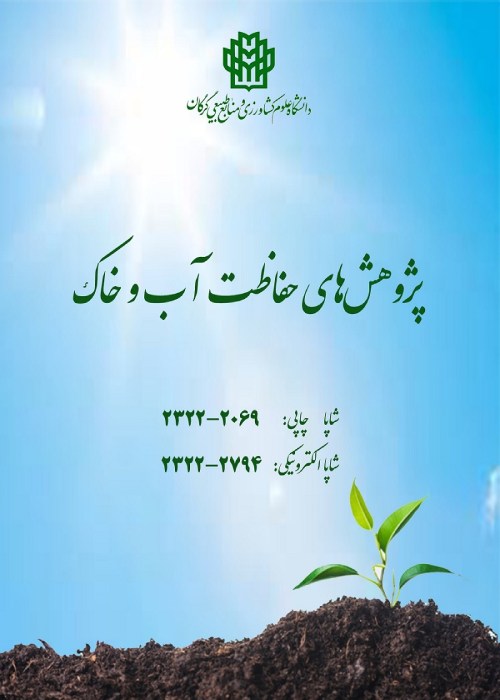Simulation and Dynamics of Hirmand Basin Water Resources System under management scenarios
One of the most important issues for mankind in the present century is access to water resources. Increasing population growth and expanding industry have made agricultural development in arid and semi-arid regions a major challenge. The depletion of water resources and the critical situation in the drinking, agricultural, industrial and environmental sectors are a major problem. An essential principle is the relative balance of water supply and demand that emerges with the creation of a comprehensive water management system.
The present study was carried out in Hirmand catchment in Sistan area, focusing on the issue of Hirmand river flow and the volume of Chah Nimeh. In order to control the alignment of Chah Nimeh, modeling steps were developed and the basis of the problem was investigated in the process of forming flow-storage diagrams. Using Vensim software, the effect of each variable was simulated on the problem and the calibration and model validation were fitted to different methods such as statistical tests.
The results of the tests show that the model corresponds to reality and the model behavior is consistent with the behavior of the system in reality. According to the statistical tests performed, between the observed and simulated values for the well reserves variable, the coefficient of determination is equal to 0.84, the root mean square error (RSME) is equal to 0.25 and the Nash-Sutcliffe criterion is equal to It is 0.77 in 2019. According to the findings, the demand for various agricultural, drinking and environmental needs will increase in the coming years. The total demand in 1410 will increase from 1350.01 to 1515.93 million cubic meters, which will be impossible to meet the needs despite the reduction of system resources. The largest increase in demand will be in the agricultural and drinking sectors.The results of the scenarios show that the policies of 70% irrigation efficiency in the agricultural sector and reduction of water losses (reduction of evaporation by 50%) based on the proposed scenarios were implemented by the model.
The results show that the irrigation efficiency policies of 70% in the agricultural sector and the reduction of water losses (reduction of evaporation by 50%) based on the proposed scenarios were implemented by the model. Examining the results of these scenarios, it is seen that each of these solutions will reduce water shortage in the coming years, but the best result has been achieved in the first scenario (70% irrigation efficiency in the agricultural sector). In general, the findings show that the continuation of the current consumption trend and, consequently, the continued withdrawal of water resources with the same trend, will have irreparable effects. In this situation, modeling optimal consumption in different sectors, observing limit conditions and creating a culture based on non-extravagance is one of the key issues in crisis management and is one of the most basic foundations of consumption management.
- حق عضویت دریافتی صرف حمایت از نشریات عضو و نگهداری، تکمیل و توسعه مگیران میشود.
- پرداخت حق اشتراک و دانلود مقالات اجازه بازنشر آن در سایر رسانههای چاپی و دیجیتال را به کاربر نمیدهد.




